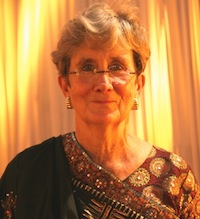
Ishwarbhai Patel was the role model to my role models. Today, on the first anniversary of his death, we remember him fondly.
In a country where ritual hygiene is sacrosanct and actual hygiene is observed mostly in the breach, Ishwarbhai devoted his life to the rational, hygienic management of human waste. Recipient of India’s Padma Shri for distinguished service to the country, among many other national and international awards, Ishwarbhai’s greatness and achievements were certainly widely admired. But, true to his modesty and good humor, he got more pleasure from his more humble nickname, “Mr. Toilet”.
Ishwarbhai was as matter-of-fact as could be about all matters of human waste. Within the first five minutes of the first time we met, he advised me how much my average daily dump weighed in grams – I forget the number – and added that it was likely more dense than the average Indian feces, because the Western diet includes more refined and processed foods. This was typical conversation, and there was nothing casual about it. It was part of Ishwarbhai’s mission. Having made sanitation his life’s work, he could hardly afford to be abashed in discussing these things. Moreover, he understood that the polite refusal of most people to talk about human waste entailed a pernicious complicity in the epidemic of debilitating and frequently lethal diarrheal diseases in India. “How can we solve a problem people are too embarrassed to talk about sensibly?” he complained.


















Recent Comments